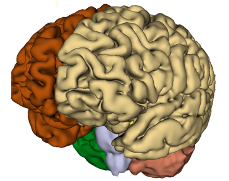Submission information
Submission Number: 137
Submission ID: 241
Submission UUID: 7dd2f3b7-cff2-4f82-922e-6921e5eb451a
Submission URI: /form/project
Created: Fri, 01/28/2022 - 09:16
Completed: Fri, 01/28/2022 - 09:16
Changed: Wed, 05/01/2024 - 15:44
Remote IP address: 66.206.189.249
Submitted by: Rika Carlsen
Language: English
Is draft: No
Webform: Project
| Received Sent | 0 |
|---|---|
| Accept and Publish Sent | 0 |
| Project Title | Developing subject-specific models for the study of traumatic brain injury |
| Program | CAREERS |
| Project Image |

|
| Tags | finite-element-analysis (588), image-processing (299), matlab (2), programming (5), unix-environment (60), workflow (365) |
| Status | Complete |
| Project Leader | Rika Carlsen |
| carlsen@rmu.edu | |
| Mentor(s) | Anu Tripathi |
| Student-facilitator(s) | Jordan Myers |
| Mentee(s) | |
| Project Description | Our research group is developing a workflow for generating subject-specific finite element head models from medical imaging data. These head models are applied to simulate blunt impact and blast loading scenarios with a goal of predicting the severity of brain injury. The model generation process includes segmenting the functional and structural regions of the brain, generating an appropriate finite element mesh, and incorporating structural details from medical imaging data. We are seeking a student who is interested in learning the steps in the workflow and developing new methods for improving the anatomical accuracy of these models. |
| Project Deliverables | The project deliverables include the following: (a) Obtain the brain segmentation from subject-specific MRI scans, using the AI-based medical image processing software FreeSurfer. (2) Generate the skull segmentation for the subject using the software FSL, (3) Combine the segmentations and manually add remaining anatomical segmentations (CSF, dura, falx, tentorium) using the software 3D Slicer, (4) Run in-house MATLAB codes to generate finite element mesh from the segmentations, (5) Repeat process (Steps 1 – 4) for additional subjects. |
| Project Deliverables | |
| Student Research Computing Facilitator Profile | The candidate should have some MATLAB programming experience. Ability to program in a Linux/Unix environment is desirable. Experience/knowledge in medical image processing and finite element analysis (Abaqus) is a plus. |
| Mentee Research Computing Profile | |
| Student Facilitator Programming Skill Level | One programming class |
| Mentee Programming Skill Level | |
| Project Institution | Robert Morris University |
| Project Address | 6001 University Blvd Moon Township, Pennsylvania. 15108 |
| Anchor Institution | CR-Penn State |
| Preferred Start Date | |
| Start as soon as possible. | Yes |
| Project Urgency | Already behind5Start date is flexible |
| Expected Project Duration (in months) | 3 months |
| Launch Presentation | |
| Launch Presentation Date | 06/08/2022 |
| Wrap Presentation | |
| Wrap Presentation Date | |
| Project Milestones |
|
| Github Contributions | |
| Planned Portal Contributions (if any) | |
| Planned Publications (if any) | The generated models will be used in future finite element modeling studies of traumatic brain injury, which will be published. |
| What will the student learn? | The student will learn about subject-specific modeling, gain hands on experience in medical image analysis, and learn how to generate a voxel-based finite element mesh. |
| What will the mentee learn? | |
| What will the Cyberteam program learn from this project? | |
| HPC resources needed to complete this project? | Our current XSEDE allocation can be used to test the results. Several open-source software packages will be used (Freesurfer, FSL, 3D Slicer), and the only required commercial software package is MATLAB. |
| Notes | |
| What is the impact on the development of the principal discipline(s) of the project? | |
| What is the impact on other disciplines? | |
| Is there an impact physical resources that form infrastructure? | |
| Is there an impact on the development of human resources for research computing? | |
| Is there an impact on institutional resources that form infrastructure? | |
| Is there an impact on information resources that form infrastructure? | |
| Is there an impact on technology transfer? | |
| Is there an impact on society beyond science and technology? | |
| Lessons Learned | |
| Overall results |